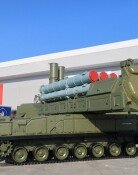`Indiscriminate Exports to Be Checked`
`Indiscriminate Exports to Be Checked`
Posted August. 20, 2001 09:30,
Prior to China`s WTO entry in November, the World Trade Organization (WTO) set up `the special measures to protect the existing member countries` including safeguards against China, in order to prevent China from indiscriminate exports, reported the Nihon Keizai Shimbun on 18th.
The WTO plans to constitute `the mutual agreement document` containing the terms for China`s entry into WTO, to adopt it in the WTO working level meeting next month, and to make it effective as soon as China`s WTO entry is approved by the cabinet meeting which will be held in Qatar in November.
This `mutual agreement` will urge China,--the 5th biggest export country in the world following the US, the EU, Japan, and Canada--, to reform the domestic regulations, systems, and economic management according to the principle of free trade. And it focuses on the protective measures of the existing member countries against China`s aggressive exports.
First of all, by establishing the safeguards against China exports, the WTO will restrict promptly the imports of the Chinese products in case that the domestic industries of the member countries are damaged by the Chinese products. Because, thus far, the WTO has not approved the safeguards against a certain country in principle, this measure will be the special case.
For textile goods, the safeguards against the existing member countries are supposed to be abolished by the end of 2004. But the safeguards against the Chinese textile goods will be prolonged by the end of 2008.
According to this measure, the existing members are able to take three kinds of safeguards against China such as the general safeguards, the special safeguards, and the textile safeguards.
And the WTO plans to ease up the conditions to exercise the anti-dumping measure only against China for the future 15 years. In particular, the anti-dumping duties have usually been calculated on the basis of the domestic prices or the production cost. But because China is a non-market country in which the state-owned companies constitute the majority, the WTO will allow more discretionary power for the country who sets up the anti-dumping measure.
Besides, the WTO plans to establish `the watchdog against China` for the future 10 years in order for each directors board of `goods`, `service` and `intellectual property right` etc. to supervise every year whether China complies with the free trade principles such as market open and tariffs reduction.
The watchdog against China was more strengthened than the current system, according to which the WTO has examined the trade policies of the US, the EU, Japan and Canada every two year, and has inspected their trade policies every four years for the remaining top 20 trade countries.
The WTO has set up a series of the special protective measure against China going off the free trade principle on which it should not discriminate a certain country, because the WTO has been greatly alert on the uplift of China`s competitive edge.
The special safeguards, textile safeguards, and the ease of anti-dumping measure contained in this `mutual agreement` were scaled up from the mutual agreement between China and the US in 1999.
Lee Young-Ee yes202@donga.com
Headline News
- Ukraine says N. Korea’s first troops arrive in Kursk
- N. Korea begins installing barriers on Donghae Line after 'bombing show'
- K-defense operating profit expected to jump by 200% in Q3
- Seoul City launches DDP rooftop tours, celebrating 10th anniversary
- Ahn Jung-geun’s historic writings return to Korea in 15 years







